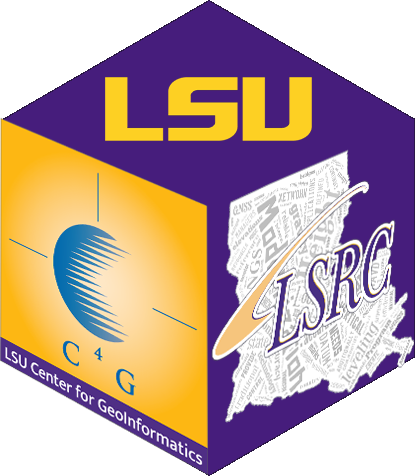
In 2001, LSU’s College of Engineering created a Center for GeoInformatics (C4G) to build new research and services in Geodesy and GeoInformatics. Over the past ten years, LSU’s C4G has been instrumental to the State of Louisiana; and exposure provided by the Center’s data has offered critical information for infrastructure elevation and roadway assessment.
Professor and Researcher Roy K. Dokka, Ph.D., was the founding executive director of LSU’s C4G and was also director, Louisiana Spatial Reference Center (LSRC); and holder of the Fruehan Family Professorship in engineering at LSU. The LSU community lost one of its most dedicated research and faculty members when Dokka passed away on Monday, August 1, 2011, at his residence in St. Francisville, La. He was 59 years old.
Dokka and C4G’s research interests centered on the application of the Global Positioning System (GPS) and geodetic leveling to study the massive subsidence that is affecting Louisiana’s coast and midcontinent, and on understanding the role that tectonism and climate play in creating landscapes.
In 2002, Dokka initiated the LSRC, a partnership with the National Geodetic Survey-NOAA, focused on creating a state-of-the-art positional infrastructure for the state. NGS' National Spatial Reference System (NSRS), provides the foundation for transportation, communication; mapping and charting; and a multitude of scientific, engineering, and agricultural applications in Louisiana.
Dokka ‘s vision for C4G provided a solid foundation by establishing a statewide network of Continuously Operating Reference Stations (CORS), and then worked with state legislation to make the CORS network a vertical control standard for the State of Louisiana. This infrastructure is the backbone for surveying in Louisiana, as well as supporting all GIS development, detailed topographic mapping, precision farming, navigation, and other geospatial applications.
By implementing a Real-Time Network (RTN) on this CORS infrastructure, Dokka created GULFNet as a way for subscribers to tie into the NSRS and enjoy a virtual zero-length baseline to this Vertical Geodetic Control throughout the State of Louisiana. GULFNet uses the entire network of more than 60 GPS receivers to compute necessary atmospheric corrections for a subscribed rovers' position and deliver them directly to the GULFNet subscriber in real-time within the 3D error space of a golf ball.
LSU and the College of Engineering recognize that the service provided by C4G is critical to the State, and is looking at C4G’s business plan to ensure that the stability and sustainability of the center’s services continues and expands in the near term. In addition, the College will provide leadership to build C4G’s research component as a complement to its existing service component.
Given the timeliness and current opportunities about GeoInformatics within areas of research and involvement to provide critical information for infrastructure elevation and roadway assessment, LSU’s C4G will continue to be a valuable asset for government, industry and higher education. Serious consideration to C4G’s expansion plans will focus on advantages and the impact to be a leading research area for the College and University in the Gulf Coast Region.
The LSU College of Engineering has a clear understanding with C4G’s constituents and partners, as well as a definitive commitment to continued success and expansion.
